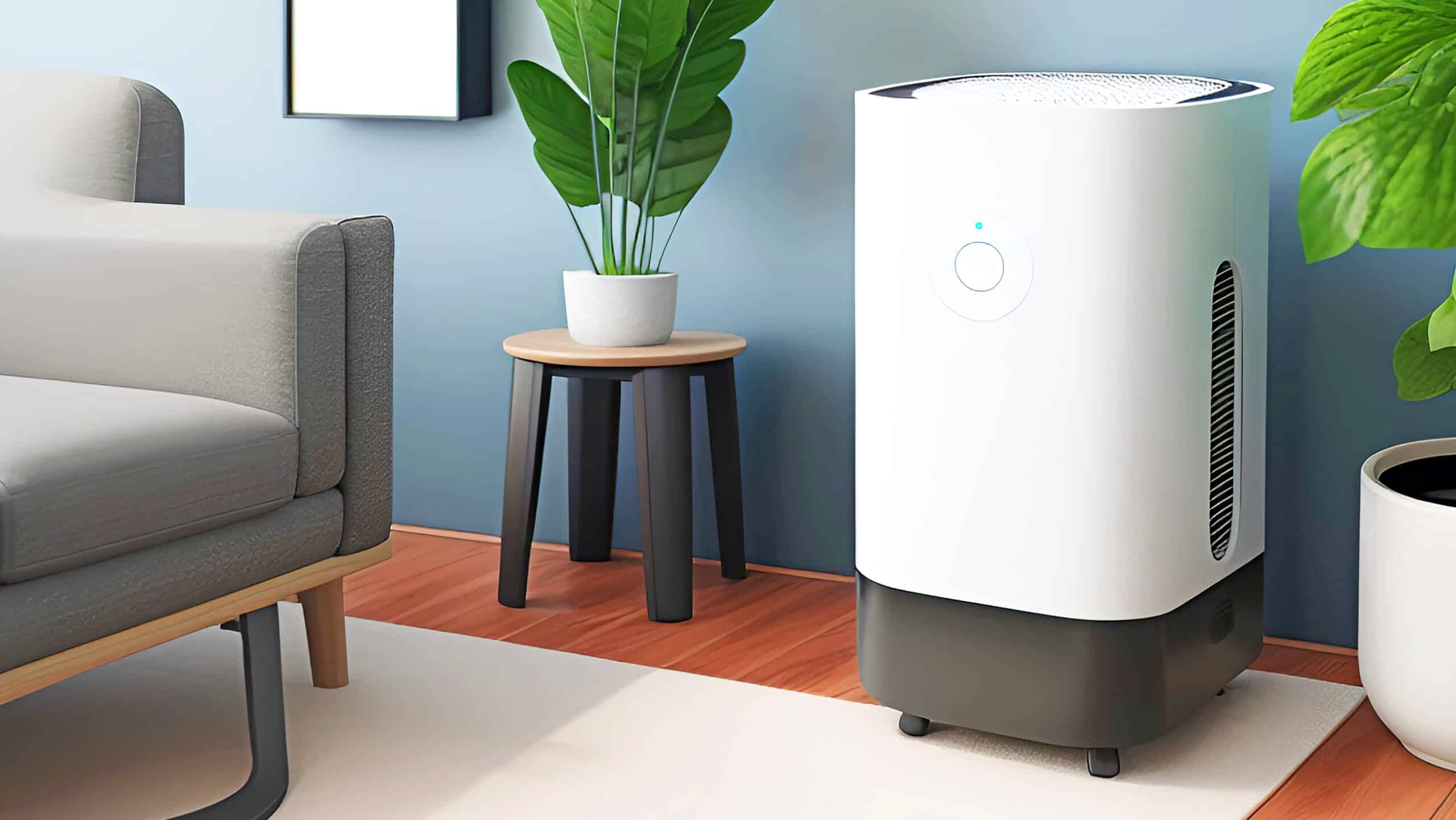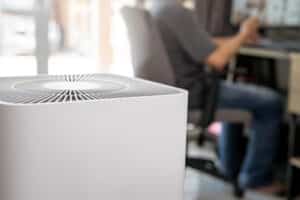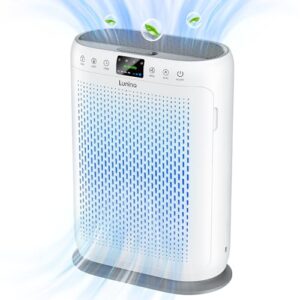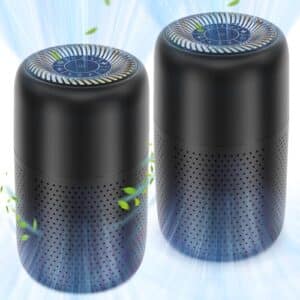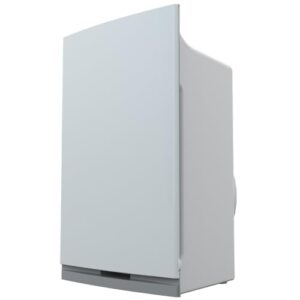Do Air Purifiers Consume a Lot of Energy or Contribute to High Electricity Bills?
Key Takeaways
- Air purifiers consume energy while in operation, but their energy consumption is relatively low compared to other household appliances.
- Energy-efficient models and proper usage patterns can help minimize the impact of air purifiers on electricity bills.
- Factors such as room size, fan speed settings, and additional features can affect the energy consumption of air purifiers.
When it comes to improving indoor air quality, many households turn to air purifiers as a solution. These devices are designed to filter out pollutants, allergens, and other harmful particles from the air we breathe. However, concerns about energy consumption and potential impact on electricity bills often arise. In this article, we will explore whether air purifiers consume a lot of energy and whether they contribute to high electricity bills.
The Energy Consumption of Air Purifiers
Let’s start by taking a closer look at the energy consumption of air purifiers. Like any electrical appliance, air purifiers do consume energy while in operation. However, the amount of energy they use can vary depending on several factors.
The wattage of an air purifier is an important factor to consider when assessing its energy consumption. Most air purifiers have wattages ranging from 10 to 100 watts. Smaller units generally have lower wattages, while larger and more powerful models tend to consume more energy.
It’s worth noting that air purifiers with additional features such as built-in ionizers or UV lights may consume slightly more energy than basic models. These additional features provide extra air purification capabilities but also contribute to increased energy usage.
Another factor that influences energy consumption is the fan speed setting. Air purifiers typically have adjustable fan speeds, allowing users to customize the airflow according to their needs. Higher fan speeds generally consume more energy than lower settings.
Energy Efficiency and Cost Considerations
While air purifiers do consume energy, it’s important to consider their energy efficiency. Energy-efficient models are designed to provide effective air purification while minimizing energy usage.
Look for air purifiers that are ENERGY STAR certified. These models meet strict energy efficiency guidelines set by the Environmental Protection Agency (EPA) in the United States. ENERGY STAR certified air purifiers are designed to save energy without compromising on performance.
When considering the impact on electricity bills, it’s essential to consider the duration of usage. Air purifiers are typically used continuously or for extended periods, especially in rooms where air quality is a concern. However, their energy consumption is relatively low compared to other household appliances.
According to estimates, an average air purifier operating continuously at a medium fan speed consumes around 50-70 watts per hour. Based on the average electricity rate, this translates to approximately $0.01 – $0.02 per hour. Over a month, assuming 24/7 usage, the cost would be around $7 – $14. While this is not negligible, it is unlikely to contribute significantly to high electricity bills.
Factors That Affect Energy Consumption
Several factors can affect the energy consumption of air purifiers:
- Room size: Larger rooms require air purifiers with higher fan speeds to effectively circulate and purify the air. This can lead to increased energy consumption.
- Filter condition: Regularly cleaning or replacing air filters is crucial for maintaining optimal performance. Clogged or dirty filters can restrict airflow and force the air purifier to work harder, consuming more energy.
- Usage patterns: The duration and frequency of air purifier usage impact energy consumption. Using the device only when needed or during specific times can help reduce energy usage.
- Additional features: As mentioned earlier, air purifiers with additional features like ionizers or UV lights may consume more energy due to their enhanced functionalities.
Conclusion
Air purifiers do consume energy while in operation, but their energy consumption is relatively low compared to other household appliances. Energy-efficient models and proper usage patterns can help minimize the impact on electricity bills. While the cost may vary depending on factors such as room size, fan speed settings, and additional features, the overall contribution to high electricity bills is unlikely to be significant.
Improving indoor air quality is important for our health and well-being, and air purifiers can play a crucial role in achieving this. With proper consideration and efficient usage, the benefits of cleaner air outweigh the potential energy consumption concerns.
Related Websites:
FAQs:
Q: Do air purifiers consume a lot of energy or contribute to high electricity bills?
While air purifiers consume energy, their impact on electricity bills can vary. Factors such as the size of the room and the air purifier’s settings affect energy consumption. However, there are energy-efficient options available, and with proper usage, the impact on electricity bills can be minimized.
Q: How do air purifiers work?
Air purifiers work by filtering and cleaning the air. They use various technologies like HEPA filters, activated carbon filters, or UV light to remove pollutants, allergens, and odors from the air. Different types of air purifiers are available in the market, each with its unique features and filtration methods.
Q: How can I choose an energy-efficient air purifier?
To choose an energy-efficient air purifier, look for models with Energy Star certification. These models meet strict energy efficiency guidelines. Additionally, consider factors like the size of the room, the air purifier’s power consumption in watts or kilowatt-hours, and any smart features that can optimize energy usage.
Q: How can I estimate the impact of an air purifier on my electricity bill?
To estimate the impact of an air purifier on your electricity bill, you can calculate its energy consumption based on its power rating and the average electricity rates in your area. By multiplying the power consumption in kilowatts by the number of hours used per day and the electricity rate, you can get an approximate cost.
Q: Are there alternative methods to improve indoor air quality that consume less energy?
Yes, there are alternative methods to improve indoor air quality that consume less energy. These include natural ventilation, proper cleaning and maintenance of HVAC systems, using indoor plants for air purification, and minimizing the use of products that release pollutants. It’s essential to consider these options alongside air purifiers.

